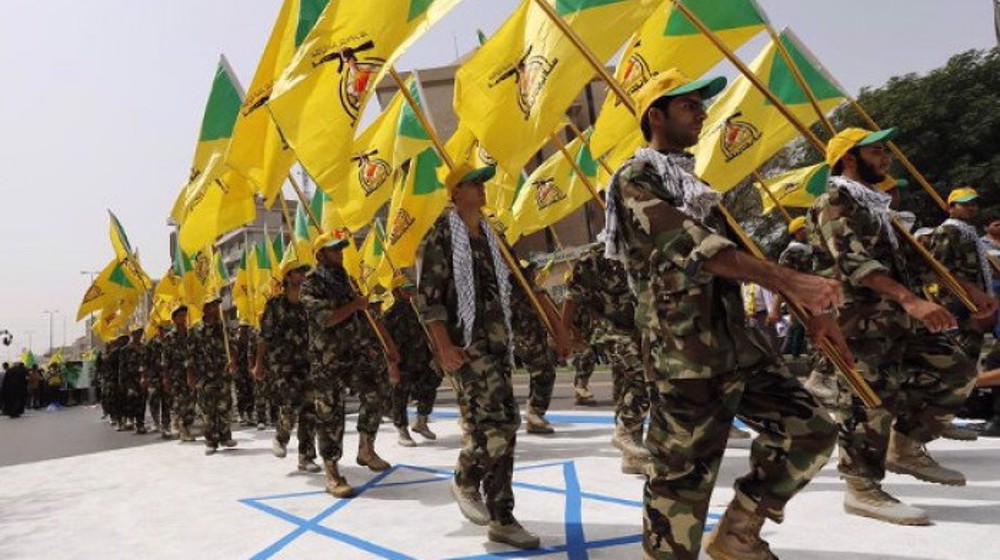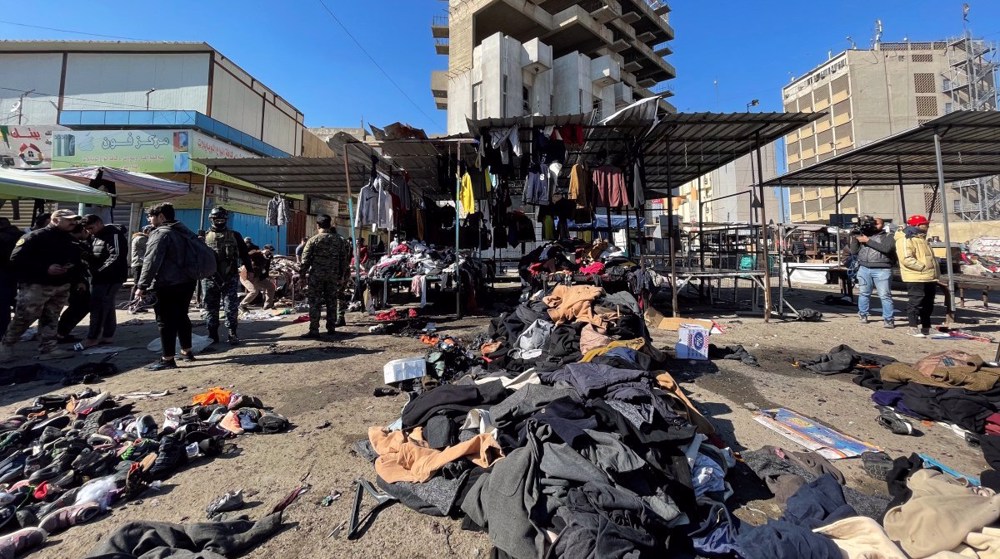Iraqi resistance groups concerned about Saudi ‘investment plans’
Iraqi resistance groups have expressed serious doubts about the real motive behind Saudi Arabia’s plans to “make economic investments” in the Arab country given the kingdom’s dark record of supporting Takfiri terrorism as well as intervention in Iraq’s domestic affairs.
Asa’ib Ahl al-Haq movement, a subdivision of anti-terror Popular Mobilization Forces (PMU) or Hashd al-Sha’abi, raised alarm at the rapprochement with Saudi Arabia, citing the Riyadh regime’s negative role in Iraq, ranging from meddling in its domestic affairs and sponsoring Daesh.
“We have doubts and security concerns about Saudi Arabia’s desire to invest in the Shia provinces, given the fact that our history with the kingdom is full of issues that had previously harmed the Iraqi people,” an unnamed Asa’ib leader told the Arabic Post.
Saudi Arabia mulls farming one million hectares in the desert areas of four Iraqi western provinces of Muthanna, Anbar, Najaf and Karbala.
Shia political parties vehemently reject the Saudi investment plans in particular because it focuses on Iraq’s Shia areas.
On Tuesday, Saudi Arabia’s Crown Prince Mohammed bin Salman received a phone call from Iraqi President Barham Salih, the Saudi Press Agency (SPA) reported.
During the call, the two sides reviewed Riyadh-Baghdad relations and explored ways of enhancing bilateral cooperation in various fields within the framework of the Saudi-Iraqi Coordination Council.
Meanwhile, Iraqi Prime Minister Mustafa al-Kadhimi announced the groundwork for launching Saudi investments in Iraq.
Iraqi government sources told the Arabic Post that a Saudi delegation will visit Baghdad in the coming weeks in order to discuss Iraq’s efforts aimed at facilitating the Saudi projects.
Kadhimi, they added, has proposed discussing an understanding with the Iraqi opponents, which includes Saudi investors paying “the political and armed groups as a settlement to allow their investments, but the Saudi side has not commented on the matter to date.”
The sources also highlighted Saudi Arabia’s so-called security concerns regarding its investments and projects in Iraq, adding that Kadhimi has pledged to overcome all obstacles.
Saudi Arabia resumed its diplomatic relations with Iraq in December 2015 after a 25-year break following the Iraqi invasion of Kuwait in 1990.
In November 2020, the two countries opened the Arar border crossing for trade and a high-ranking Saudi delegation visited Baghdad within the framework of the Saudi-Iraqi Coordination Council and the Economic, Trade, Investment, Development and Joint Relief Committee.
Saudi Arabia’s Wahhabi ideology is the main inspiration for Daesh, which began a terror campaign in Iraq in 2014.
Iraq declared victory over Daesh in December 2017 after a three-year counter-terrorism military campaign, which also had the support of neighboring Iran.
The terror outfit’s remnants, though, keep staging sporadic attacks across Iraq, attempting to regroup and unleash a new era of violence.
Earlier this month, Daesh claimed responsibility for the biggest bomb attack to hit Baghdad since 2018, which killed at least 32 people and wounded 110 others.
Several Iraqi resistance factions blamed the bombings on Saudi Arabia and its allies.
At the height of Iraq’s battles against Daesh, the Saudi kingdom sparked anger in the Arab country on numerous occasions by calling for the dissolution of the PMU, which was playing a highly effective role in liberating Iraqi regions captured by the Takfiri terror outfit back then.
In May 2020, the Saudi-funded MBC television insulted late Hashd al-Sha’abi commander Abu Mahdi al-Muhandis, a national icon who was assassinated in a US drone strike earlier that year along with top Iranian anti-terror commander Lieutenant General Qassem Soleimani.
The insult drew condemnations from different Iraqi groups, with the Arab country’s parliament calling for the closure of the MBC’s office for promoting sectarian attitudes and insulting Iraqi figures over the past years.
D-8’s role in Iran’s economy after Cairo summit
China slams US as ‘war-addicted’ threat to global security
China ‘firmly opposes’ US military aid to Taiwan
VIDEO | Press TV's News Headlines
President Yoon Suk Yeol to be removed from office
At least 19 Gazans killed by Israeli airstrikes since dawn: Medics
Leader: Iran neither has nor needs proxy forces
US fighter aircraft shot down ‘in friendly fire’ amid aggression on Yemen

















 This makes it easy to access the Press TV website
This makes it easy to access the Press TV website